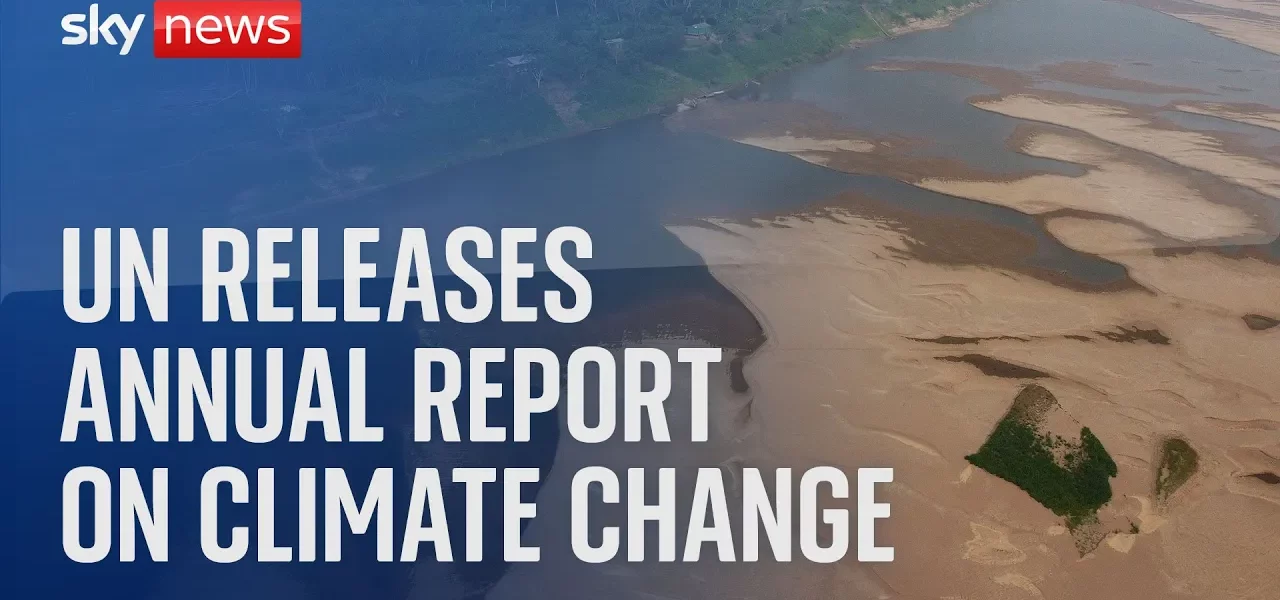Advancements in Weather and Climate Sciences: Achieving Global Goals

This article delves into the latest advancements in weather, climate, and environmental sciences, emphasizing the transformative roles of artificial intelligence, satellite technology, and collaborative approaches in achieving global sustainability goals.
Introduction
The ongoing climate crisis necessitates urgent and innovative solutions to achieve global sustainability goals. Recent reports highlight remarkable advancements in weather and climate sciences that promise to enhance our predictive capabilities and response strategies. By integrating artificial intelligence (AI), machine learning, and space-based observations, we stand on the brink of a new era in environmental science. This article will explore these advancements in detail, examining their implications and the necessity for collaborative, transdisciplinary approaches to fully leverage their potential.
Artificial Intelligence and Machine Learning in Weather Forecasting
Artificial intelligence and machine learning are revolutionizing the field of weather forecasting, offering unprecedented opportunities to improve predictive accuracy and accessibility.
Revolutionizing Weather Modeling
AI algorithms are designed to analyze vast datasets rapidly, allowing meteorologists to forecast weather patterns more efficiently than traditional numerical models. Key benefits include:
- Faster processing times for large data sets.
- Enhanced accuracy in predicting extreme weather events.
- Cost-effective solutions for developing countries lacking resources.
Challenges and Considerations
While AI offers significant advancements, it also poses challenges related to energy consumption and data quality. Balancing the benefits with environmental impacts is crucial for sustainable development.
Space-Based Earth Observations
Satellites provide critical insights into atmospheric conditions and environmental changes, opening new frontiers in climate science.
Improving Extreme Weather Forecasts
Space technology enhances our ability to predict extreme weather by:
- Gathering data from remote and challenging terrains.
- Supplementing ground-based observations in data-sparse regions.
- Monitoring greenhouse gas emissions effectively.
Applications in Climate Mitigation
Satellite data is vital for informing mitigation strategies and assessing progress towards the Paris Agreement goals. Effective monitoring ensures accountability in greenhouse gas reduction efforts.
Immersive Technologies and Digital Twins
Immersive technologies, including virtual reality and digital twins, bridge digital and physical realms to enhance decision-making in environmental management.
Creating Digital Replicas
Digital twins replicate real-world systems, enabling simulations of environmental impacts such as floods and droughts. This technology supports:
- Enhanced land and water management strategies.
- Improved community preparedness for extreme weather events.
- Data-driven decision-making processes.
The Importance of Transdisciplinary Approaches
The report emphasizes that achieving global goals requires more than just scientific advancements; it necessitates collaborative efforts across disciplines.
What is Transdisciplinarity?
Transdisciplinarity involves integrating knowledge from various fields to co-create solutions for complex challenges. This approach encourages:
- Increased engagement of local communities in decision-making.
- Bridging gaps between science and policy.
- Innovative solutions that encompass diverse perspectives.
Implementing Collaborative Models
Effective transdisciplinary practices enhance trust in institutions and build resilience in communities, ensuring that solutions are contextually relevant and sustainable.
Challenges and Gaps in Implementation
Despite the promising advancements, significant barriers remain that hinder the effective application of new technologies.
Data Quality and Accessibility
Data challenges, including quality, availability, and access, pose significant risks to implementing scientific breakthroughs effectively. Key issues include:
- Inconsistent data quality across regions.
- Limited access to advanced technologies for developing countries.
- Governance challenges that impede resource allocation.
Recommendations for Progress
To overcome these challenges, the report suggests:
- Enhancing data quality and availability frameworks.
- Boosting investments in emerging technologies.
- Scaling up education and training in transdisciplinary approaches.
Conclusion
The advancements in weather and climate sciences present a wealth of opportunities to address global challenges. However, to fully harness these technologies, collaborative efforts across disciplines are essential. By embracing transdisciplinary approaches and addressing existing gaps, we can ensure that the benefits of scientific advancements are accessible to all. It is crucial for local communities, governments, and institutions to work together towards a sustainable future. For further insights and discussions, consider exploring our related articles on climate science advancements and community resilience strategies.
“`




